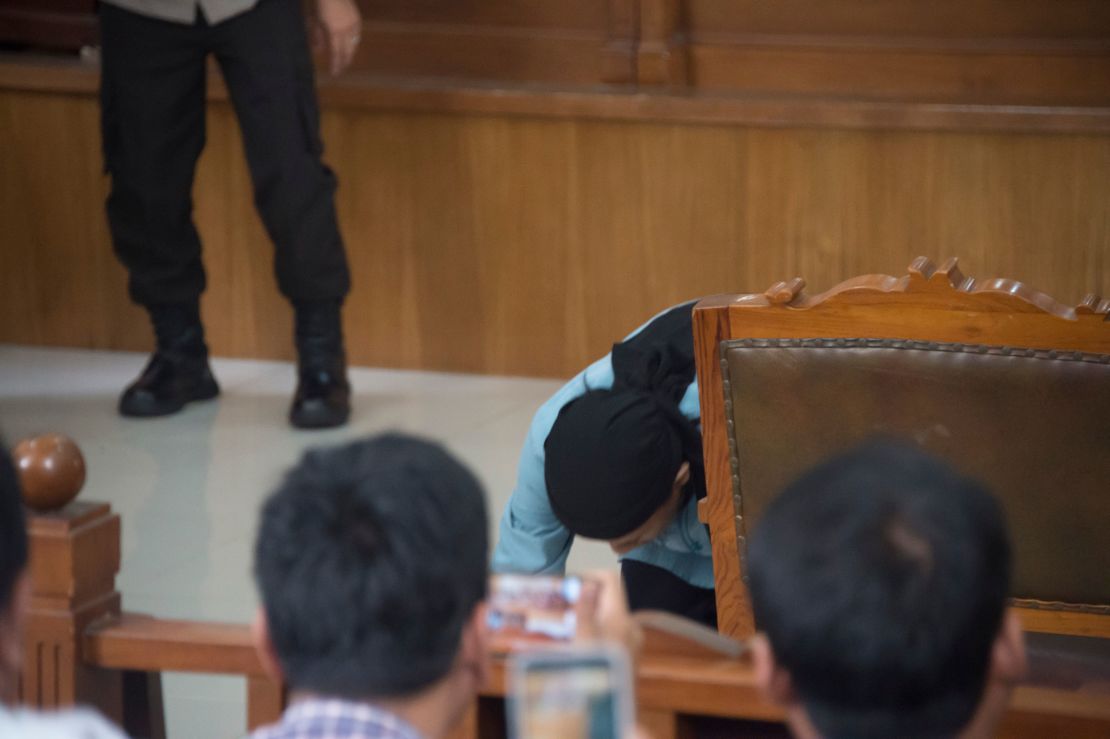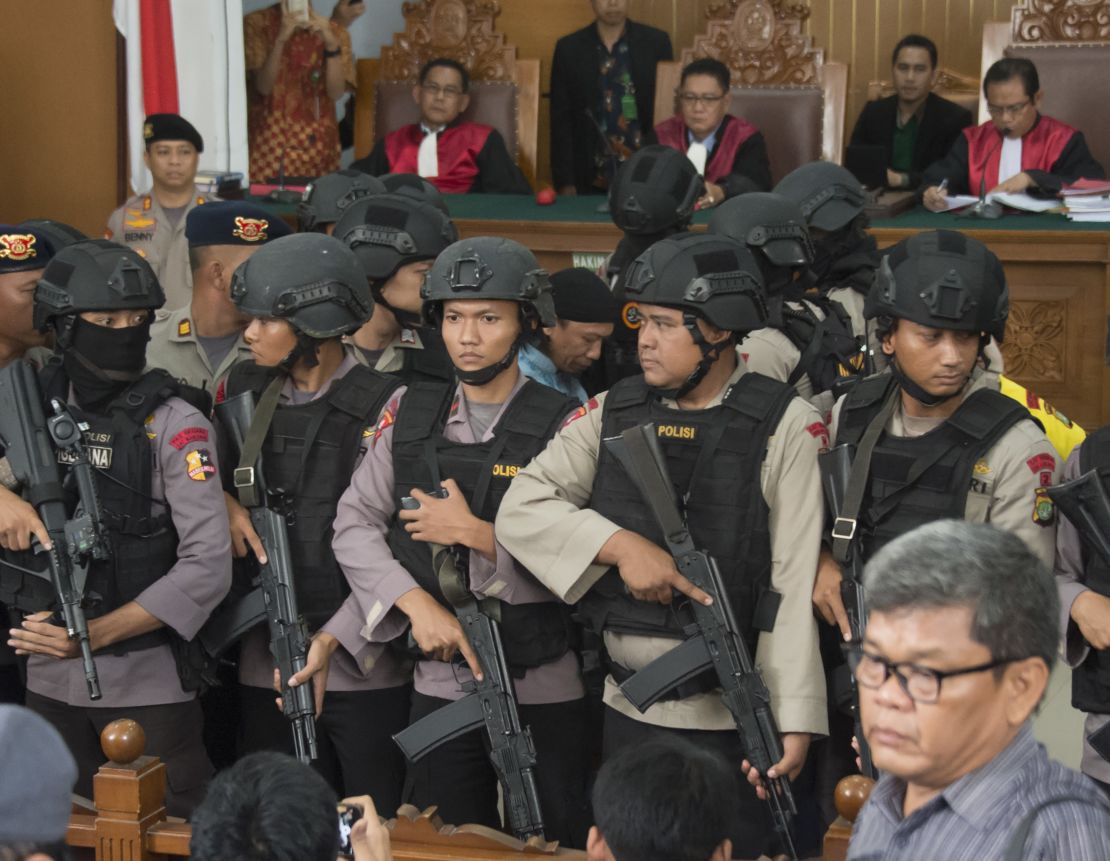An extremist Indonesian cleric was found guilty of inciting terrorism and sentenced to death by a Jakarta court Friday.
Under heavy security, the South Jakarta District Court found Aman Abdurrahman, the leader of the ISIS-affiliated Jamaah Ansharut Daulah (JAD) militant group, guilty of inciting five terror attacks, including a January 2016 attack in which four people were killed and 25 wounded by a suicide bomber and gunmen in central Jakarta.
His lawyer, Asludin Hatjani, said that he had met the cleric Friday morning before court proceedings began, and Abdurrahman had told him he would “praise God” if he was sentenced to death. Abdurrahman has the right to appeal, and Hatjani says he will consult with his client to determine whether they will exercise that right.
Abdurrahman prostrated himself on the floor of the courtroom as the sentence was read out.

As many as 500 officers were deployed to the court for the reading of the verdict, according to South Jakarta Deputy Police Chief Budi Sartono.
The US State Department designated JAD as a terrorist organization last year, describing it as an umbrella group formed in 2015 and composed of almost two dozen Indonesian extremist outfits that pledged allegiance to ISIS leader Abu Bakr al-Baghdadi. Abdurrahman is the highest ranked cleric associated with the group.
He was scheduled to appear at a court hearing in May, but it was postponed after a deadly riot broke out at the jail where he was being held in Depok, West Java.
Abdurrahman had plead not guilty before the court’s verdict. The date of his planned execution by firing squad has not been set, as the defense decides whether to appeal.

ISIS sympathies
Up to 700 Indonesians have traveled to Syria in recent years to fight with anti-regime forces, with the majority allying themselves with ISIS, according to the Indonesian government.
Indonesia fighters have also appeared in ISIS propaganda.
The southeast Asian country has long struggled with domestic terrorist groups, particularly Jemaah Islamiyah, which claimed responsibility for 11 attacks between 2000 and 2010, including the deadly 2002 Bali bombings, which left more than 200 people dead and hundreds injured, many of them tourists.
Jemaah Islamiyah’s capabilities have been steadily eroded by a concerted counter-terrorism effort since 2009.
Indonesia has invested heavily in counter-terrorism, establishing the elite special forces unit Detachment 88, which has received support and training from the US and Australia, and has been credited with greatly reducing the number of attacks.
However, in a report on ISIS published earlier this year, the UN Security Council said the group’s losses in Iraq and the Syria may intensify the threat to southeast Asia.
The report named JAD and Jamaah Ansarul Khilafah as key ISIS-linked groups in Indonesia, saying that the former has been responsible for more attacks, but that the latter is a “growing threat.”
Journalists Bard Wilkinson in Hong Kong contributed to this report.


